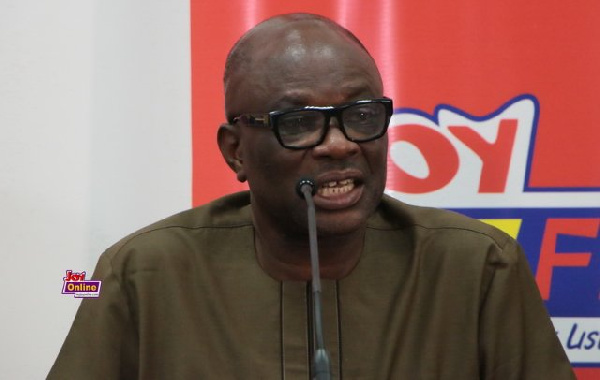The President of the Ghana Union of Traders Association (GUTA), Dr. Joseph Obeng, is concerned about possible trade tensions among respective signatories to the single continental trade market if existing laws on trade and investment from these respective economies are not harmonized.
“We have no clue about the customs procedures and infrastructure to facilitate tariff-free trade – this is troubling, especially when customs procedures are the heart of this single market arrangement,” he told Charles Ayitey on the Market Place.
All 54 countries who have signed up to the single market, possess individual trade and investment laws.
Ethiopia, for example, prohibited foreign investment in its financial sector, a potential breach of AfCFTA rules. Ghana too prohibits retail trade of foreigners in its local market, another breach of AfCFTA rules.
“As a result, the secretariat could see a flurry of legal challenges from countries on behalf of their corporations,” Dr. Jospeh Obeng added.
Meanwhile, the Ghana International Trade Commission (GITC) has called for patience even as the AfCFTA Secretariat completes negotiations on common tariffs, trade and investment laws.
“Rome was not built in a day. It was best for this single market initiative to have been implemented now than have it delayed over resolvable issues as this. Patience is what we need from trading economies and signatories to this agreement,” he stated on the Market Place.
The International Monetary Fund in its Staff Discussion Notes published on May 13 2020 projects that although the implementation of some operational aspects of the African Continental Free Trade Area (AfCFTA) has been temporarily suspended, the agreement would be very important element to support post-pandemic recovery and to foster economic growth in the medium term in sub-Saharan Africa through the creation of larger and more integrated markets and the promotion of intracontinental trade.
Importantly, the implementation of the AfCFTA will also reduce uncertainty on trading relations within the continent, which—together with an expanded and more integrated market—would foster both domestic and foreign direct investment and help boost economic activity as countries emerge from the pandemic.
For the Secretary-General of the AfCFTA, 2021 sets a new milestone in the economic history of Africa’s trade eco-space.
“Today, we not only celebrate the start of a new year but today, we give Africa a new beginning, with the start of trading as a free trade area under the AfCFTA,” Wamkele Mene stated.
Latest Stories
-
Ebenezer Ahumah Djietror appointed as new Clerk to Parliament
35 minutes -
Actress Benyiwaa of ‘Efiewura’ TV series dead
1 hour -
Ashanti Regional Chief Imam dies at age 74
1 hour -
Africa Arts Network calls for tax reform to save Ghana’s theatre industry
2 hours -
SSTN Ghana Chapter reaffirms commitment to economic growth under new leadership
2 hours -
Inlaks strengthens leadership team with key appointments to drive growth across sub-Saharan Africa
3 hours -
Green Financing: What Ghana’s Eco-startups need to know
3 hours -
CHAN Qualifiers: Amoah confident of beating Nigeria
3 hours -
Governments deprioritising health spending – WHO
3 hours -
Lordina Foundation brings Christmas joy to orphans
3 hours -
Yvonne Chaka Chaka to headline ‘The African Festival’ this December
3 hours -
Nigerian man promised pardon after 10 years on death row for stealing hens
3 hours -
Patrick Atangana Fouda: A Hero in the fight against HIV passes away
3 hours -
MGA Foundation deepens support for Potter’s Village
3 hours -
Galamsey: One dead, 3 injured as pit collapses at Nkonteng
4 hours

